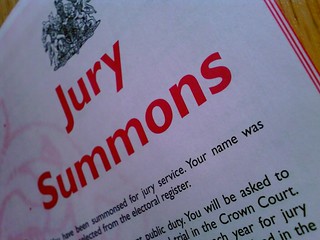Car insurance, like most insurances, can seem complicated. Deciding just how much car insurance coverage you need is the biggest hurdle. Of course, it’s easy to select the coverage that meets the requirements of your state and the lien holder (of you owe on a loan for the car, you’ve got a lien holder, and it’s likely the bank you borrowed from), but those aren’t the only factors to take into account when deciding on how much coverage you need. Using a free online service can quickly find cheap auto insurance companies and shows multiple competitive policies. In the end, you’ve got to find a coverage that will meet those requirements, and also fit within your budget.
State Requirements
You’ll want to know what the state requires you to have for insurance. Any local insurance provider should be able to tell you, but you’ll want to double check if you’re planning on using an out of state or online provider. If you still owe on your car, the lender on your loan will likely require that you have full coverage, so the state minimums will likely only come into play if you own the car you’ll be insuring.
Lien Holder Requirements
If you owe on your car, you’ve got a lien holder. The lien holder is whomever you borrowed the money from. Most (if not all) lenders will require that you carry full coverage insurance on the car. It has nothing to do with them wanting to make sure you’re safe, and all to do with making sure that should you get in an accident, that they’ll get some of their money for the loan. While most lien holders won’t require a certain level of insurance (over full coverage), it is a good idea to find out what they require just to make sure that you’re getting the coverage that you need.
Deciding on Coverage Levels
 Once you know the requirements of the state and any lien holders, you’ve got to decide on the level of car insurance coverage you want. There are two ways to look at this. The first is that you’ve got to find a coverage and provider that is affordable enough to fit into your budget. The second is usually the forgotten way of looking at insurance. The coverage doesn’t just have to fit into your budget, it also needs to cover you against a total loss. If you have full coverage, but it’s only enough to cover a portion of what you owe on the car, you’ll also want to look at something that’s usually called “Gap Insurance”. Gap insurance is aptly named in that it is designed to cover any gap between the value of the car and the remaining loan should the car be totaled before you pay it off. Car insurance can be a combination of three coverages. A liability coverage (usually what States require), Comp & Collision, and personal injury. The exact levels that you need will vary based on your situation, but your insurance provider should be able to make recommendations for you.
Once you know the requirements of the state and any lien holders, you’ve got to decide on the level of car insurance coverage you want. There are two ways to look at this. The first is that you’ve got to find a coverage and provider that is affordable enough to fit into your budget. The second is usually the forgotten way of looking at insurance. The coverage doesn’t just have to fit into your budget, it also needs to cover you against a total loss. If you have full coverage, but it’s only enough to cover a portion of what you owe on the car, you’ll also want to look at something that’s usually called “Gap Insurance”. Gap insurance is aptly named in that it is designed to cover any gap between the value of the car and the remaining loan should the car be totaled before you pay it off. Car insurance can be a combination of three coverages. A liability coverage (usually what States require), Comp & Collision, and personal injury. The exact levels that you need will vary based on your situation, but your insurance provider should be able to make recommendations for you.
How Much Deductible for Car Insurance
One of the easiest ways to lower the monthly cost of your car insurance coverage is to raise the deductible on your policy. This method is a bit of a double-edged sword, however. Raise it too high, and you might not be able to afford to have the car fixed. Or, anything short of a major collision may fall under the amount of the deductible. Again, your insurance provider should be able to help you compare the different deductible levels and help you find one that fits your budget without breaking you if you get in an accident.
The level of coverage that you need is going to be drastically different based on your own individual situation. Do you own your car, or owe on your car? Do you have sufficient savings to cover a higher deductible in an emergency? What are the requirements of your state and any lien holders? Make sure you know all that information before you go looking for car insurance, and remember to double check any suggestions by an insurance provider. We’d all like to think that they are all honest, but not all of them are. Knowing at least a little about what you’re talking about, and the information required to ask informed questions is a huge step towards not getting taken advantage of.
How much do you know about car insurance? How much have you learned since the first time you bought insurance?
img credit:stupid.fotos on Flickr.


 In the letter I received, it states that I’ll be paid $25 if my service is four hours or less and $50 if I’m there longer than $50. I’ll also be paid $50 for each day after the first day. My employment cannot be threatened due to serving on a jury (that’s good), but my employer doesn’t have to pay me for time spent away from work while serving on a jury.
In the letter I received, it states that I’ll be paid $25 if my service is four hours or less and $50 if I’m there longer than $50. I’ll also be paid $50 for each day after the first day. My employment cannot be threatened due to serving on a jury (that’s good), but my employer doesn’t have to pay me for time spent away from work while serving on a jury.